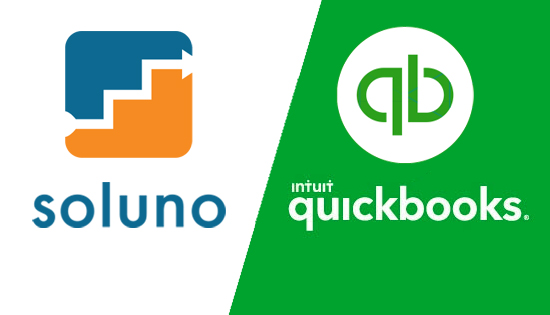Soluno vs. QuickBooks
Many law firms use QuickBooks for their billing or accounting. Some firms use it because that’s what their accountant prefers. Others use it due to familiarity with the software or the ease of which firms can find a bookkeeper who knows QuickBooks. But is QuickBooks really the best software choice? At 3545, we believe Soluno offers firms a more comprehensive option for legal billing and accounting.
The advantages to Soluno are specific, which we will explore in more depth.
Integrated solution for both billing and accounting
Soluno offers a single integrated solution for billing and accounting, including both operating and trust accounts. This seamless integration means everything is entered in one place one time, and you have the security to make sure that users only see what they should see.
If you are using separate legal billing accounting solution, you need to enter information in both places. Even if the programs are linked, you need to run reports and make sure that data matches as links can and do break. You also have two different programs to run, maintain and learn. In many cases, to limit accessibility to operating account information and have open access to trust information, firms may have two separate QuickBooks databases. In that case, you may have to enter client information three times; once in the billing program, once in the Operating books for tracking and reconciling income and advanced costs, and once for Trust books for tracking and reconciling trust/IOLTA accounts.
The more times data must be entered, the more likely that errors will occur and the more reconciliation that must be done.
Soluno’s Advantages over QuickBooks
There are several factors that make using QuickBooks alone for legal billing and accounting impractical.
- – Does your firm need to do LEDES or other electronic billing? To do this with QuickBooks you will need some type of add-on as QuickBooks does not support any electronic billing formats directly. Soluno supports LEDES98, LEDES98 BI, and other electronic billing formats
- – What type of rate structure do you have? QuickBooks can handle different rates for different firm members or different rates for different services easily. However, if you have different rates for different firm members with variations depending on the client and/or the services, these variations are not easy to setup and manage in QuickBooks. Soluno can automatically handle different rates for employees on different matters.
- – Tracking Trust/IOLTA funds. While it is possible to track these funds in QuickBooks there are three significant limitations:
- * QuickBooks will not let you know if you are going to overdraft a specific clients funds. You must manually check client/matter balances before doing any withdrawals to make sure this does not happen. Soluno will warn you if you are about to overdraft a client’s IOLTA account, protecting you from this situation.
- * QuickBooks does not have an ability to show Trust/IOLTA transactions or balances on an invoice. If you are required by Bar rules or requested by clients to show this information you will have to prepare separate reports to send out, or manually enter the information on the invoice. With Soluno, trust account information can be automatically set to show or not, depending on your firm and client preferences.
- * How do you pay your firm invoices from trust? If you generally automatically apply payments from trust to your firm invoices, this can easily be setup automatically in Soluno, with you only having to move the money at the bank. In QuickBooks you must enter the disbursement from the trust account and separately enter the payment on the invoice to have proper accounting.
- – Do your firm invoices to your clients all look the same or do you have different information showing on invoices based on client needs? With Soluno, you assign the bill template to the client or matter and the invoice layout you chose will automatically be used when you generate the bill. In QuickBooks you must choose the layout when you generate the invoice. So, if you have clients needing 5 different layouts, you will have to remember which clients need which layout and run each batch of bills separately. Depending on what you want your invoices to look like, there may be other limitations using QuickBooks. Soluno offers significantly more flexibility in invoice layout choices.
- – How do you allocate revenue across fees vs costs? When your firm receives a partial payment, most law firms want the advanced costs paid first and then have the fees paid. With Soluno, this sequence of payment application happens automatically. With QuickBooks all payments against an invoice are allocated proportionately and this cannot be controlled. If you are tracking advanced client costs on the balance sheet, this could have a significant impact on taxes owed each year.
Reporting
Another area to consider is what types of reports you need. Legal specific billing and accounting software programs like Soluno offer significantly more flexibility and capability to give you the reports you need to measure your firm. Since every firm’s reporting needs are different, we suggest you list all the reports you currently run and consider how you get the information for the reports. Do you simply generate a report at the click of a button, or do you have to gather the information from multiple reports into Excel and then do manipulation? These extra steps add time and leave room for errors… You should also consider what data is needed but is currently too difficult to access.
Soluno Can Help Improve Your Practice
Soluno offers a more comprehensive solution for law firms of all sizes to handle their billing and accounting more efficiently. Contact 3545 to take Soluno for a test drive and see if it can better meet your accounting, billing, and reporting needs.



